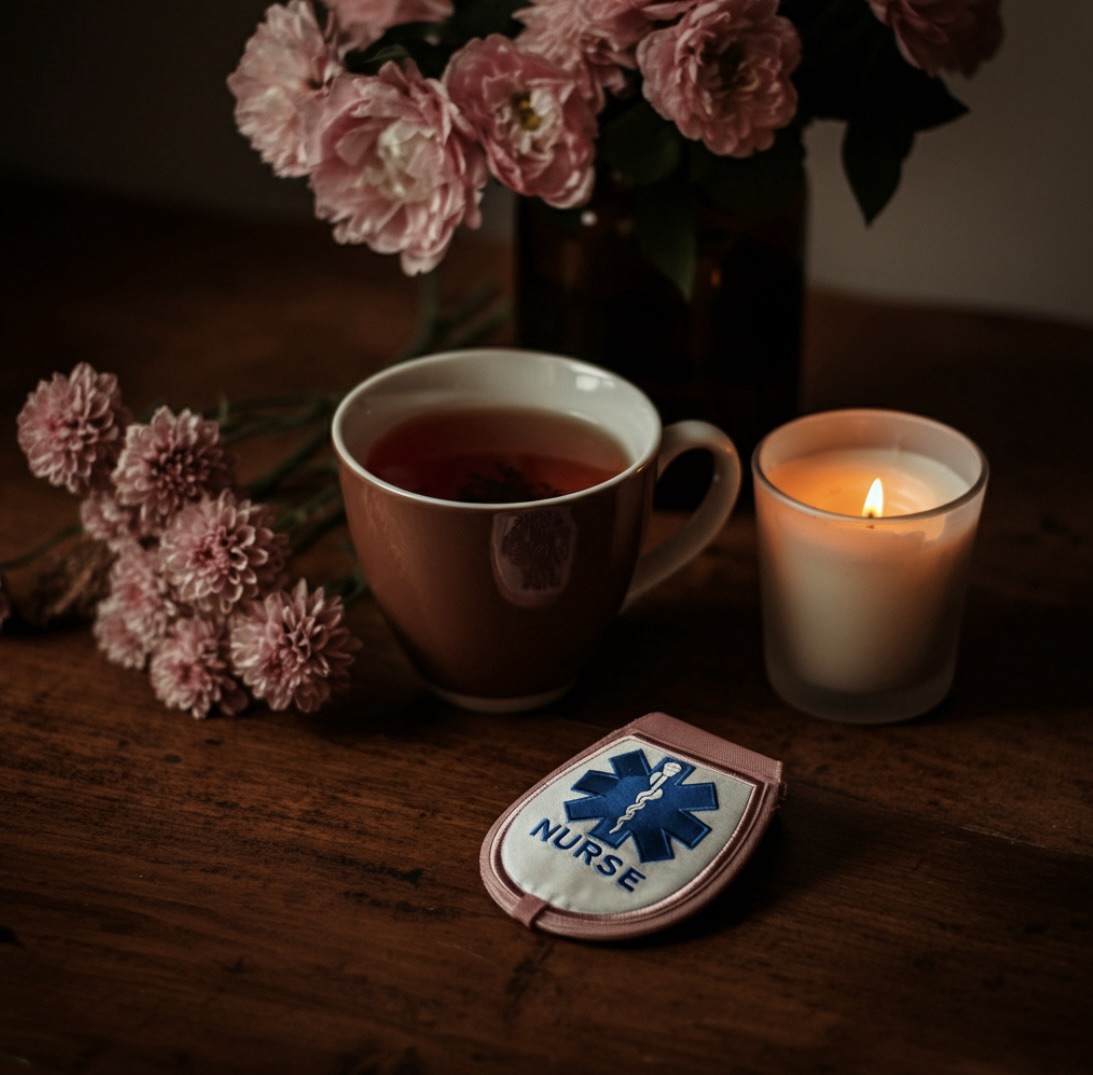Acknowledging stress isn’t a sign of weakness—it’s the first step toward resilience and healing
It often goes unsaid, but nursing sometimes feels like carrying the weight of the world in your hands. You’re not just a caregiver; you’re a comforter, an advocate, a teacher, and sometimes the last hand someone holds. The invisible load nurses carry every shift runs deep and can leave even the most resilient among us feeling drained and fragmented.
If you’re reading this, I want you to know one thing upfront: it’s okay to feel tired. It’s okay to feel overwhelmed by the stress of this calling. Because that’s what it is—a calling, and one that comes at a cost. What matters most is recognizing the toll nursing takes on you and finding a path toward healing. Starting that path begins with acknowledgment.
🌟 “You Can’t Heal What You Don’t See”
For years, I ignored my own stress as a nurse. I told myself I just needed to adjust, that a “real” nurse should handle exhaustion and pressure without faltering. But you know what happened? I kept pushing until I hit a wall I couldn’t bounce back from. My body was exhausted, my mind was foggy, and slowly, I started to lose the sense of pride I once felt in my work.
Acknowledging stress doesn’t mean you’re admitting defeat. It means you’re giving yourself the same compassion you extend so freely to your patients. When we name what we’re feeling, we take the first step in easing its grip on us.
🌼 Practical Ways to Begin Acknowledging Stress
Facing stress head-on can feel daunting, but it’s just like treating a patient with small, deliberate steps.
- Pause and Check-In With Yourself
It’s easy to get swept away in a 12-hour shift and forget to check in with your own mental and emotional state. Start small. Maybe it’s asking yourself at the end of each shift, “How did today feel for me?”Action Tip: Keep a memo on your phone or a small notebook where you jot down one word that sums up each day. Over time, you’ll start to notice patterns and gain insight into what triggers your stress. - Look Beyond Physical Symptoms
Stress doesn’t always look the way we expect. Perhaps you have tight shoulders, restless nights, or find yourself on edge during your days off. These are often the silent signals that your body is trying to tell you something. Pay attention to them. You Care Ritual: Before bed, try a 3-minute body scan meditation. Starting from the top of your head down to your toes, notice how each part of your body feels. This practice helps you reconnect with yourself and create space for acknowledging what’s weighing on you. - Share Your Story
No one understands nursing stress better than your peers. Talking about how you’re feeling doesn’t make you weaker; in fact, it connects us to others who’ve been there too. Pro Tip: Find a trusted coworker to debrief with at the end of particularly tough shifts. A simple conversation, even about shared frustrations, can lighten the emotional burden.
Feeling overwhelmed and unsure of your impact? 💜 You might find comfort in 10 Gentle Reminders for Nurses Who Feel Like They’re Not Doing Enough. It’s a reminder that you’re already giving so much.
🩺 Stress is a Signal, Not a Weakness
One memory that stands out to me is a time when I broke down mid-shift in an empty room. I’d just lost a patient I’d spent weeks caring for, and while I told myself to power through the rest of the day, my emotions had other plans. Looking back, I now see that moment not as a failure but as a critical turning point.
Your stress isn’t a sign that you’re doing something wrong; it’s evidence of how much you care. When you allow yourself to feel the weight of this job, you create space to also process it and to heal.
🌈 Actionable Steps Toward Healing
If you’re wondering what you can do after acknowledging your stress, here are a few suggestions that have worked for others (and for me):
1. Create a Pre-Shift Grounding Ritual
Starting your shift with intention can help you feel centered before stepping into the challenges ahead. It’s a way to mentally prepare yourself, creating a buffer between you and the chaos that might come.
Action Tip: Before clocking in, take two minutes to close your eyes and visualize a positive outcome for your shift. Pair this with something grounding, like a favorite song or a short meditation.
2. Build a Post-Shift Decompression Routine
When a shift ends, it’s tempting to collapse into bed or throw yourself into household tasks. But pausing to intentionally decompress fosters better recovery for your body and mind.
Pro Tip: After every shift, try one “shift detox” activity. This could be journaling something you’re proud of, taking a warm shower to symbolize washing away the day, or some light stretches to release the built-up stress.
3. Practice Saying ‘I Need Help’
Nurses often feel they have to shoulder everything alone. But learning to ask for help is not a sign of weakness; it’s an acknowledgment of teamwork and trust.
Action Tip: Practice saying, “I could use a hand with this.” It might feel uncomfortable at first, but opening the door to support from peers can remind you that teamwork lightens the load.
💭 Shift Reflections
The most important lesson I’ve learned about stress is that it’s meant to be listened to, not ignored. It’s not always something you can eliminate, but it’s a sign that something needs care and attention.
You’re allowed to feel what you feel. You’re allowed to admit when it’s too much. And in doing so, you allow yourself to truly heal. Remember, every moment you pause to breathe, reflect, or seek help isn’t just an act of survival; it’s an act of strength.
📋 FAQs About Nursing Stress
Q1. What if I don’t have time to practice self-care during shifts?
Even micro-moments can help. Take 30 seconds to focus on deep breathing, sip water to refresh, or simply close your eyes for a brief mental reset.
Q2. How do I stop feeling guilty for putting my needs first?
You can’t pour from an empty cup. By caring for yourself first, you build the strength needed to continue supporting others effectively.
Q3. Can I make my work environment more calming?
Yes! Simple changes like adding personal touches to your workstation, dimming overly bright lights, or diffusing calming scents like lavender can create a more soothing space.
📋 Quick Shift Care Plan
Here’s a quick guide to grounding yourself during a hectic shift:
- 💌 Practice small rituals (like sipping tea or wearing a comforting scarf).
- 🌟 Take micro-moments for calm (like steady breathing or blinking out at the stars).
- 🤝 Reach out for connection (check in with coworkers or lean on your support network).
🌟 End-of-Shift Pep Talk
To every nurse reading this, you are nothing short of extraordinary. The world may only catch glimpses of what you give so freely, but I see the entirety of your heart woven through every shift. You hold the fragile threads of humanity in your hands, stitching them back together with kindness, skill, and grace.
Pause for a moment. Think about today. Even the smallest things you did left ripples. Maybe it was your gentle voice reassuring someone in pain or the way you stayed steady in a moment of chaos. Those acts, however ordinary they might seem, meant everything to someone.
When exhaustion whispers that you haven’t done enough, remember this truth: you are enough. Who you are and what you give is more than the world will ever fully know, and that is a kind of wonder all its own.
💜 Nurse-to-Nurse Report
There’s a night etched in my memory, one that felt especially heavy. It was the kind of shift that drains every ounce of your heart and leaves you questioning your ability to keep moving forward. I was sitting at the nurses’ station, staring blankly at my computer screen, trying to pull myself together before clocking out. That’s when a coworker paused beside me. They didn’t rush or offer platitudes. Instead, they simply said, “I saw how hard you worked today, especially with that last patient. You were incredible. I hope you know that.” Their words didn’t erase the exhaustion, but in that moment, they gave me a glimmer of strength—to know that my effort mattered, that someone noticed, and that I wasn’t alone in carrying the weight of it all.
That one act of kindness was enough to lighten the crushing weight I’d been carrying. It softened something in me I didn’t even realize had hardened.
This is the power of small gestures. A shared smile, a quick check-in, a hand on the shoulder—they remind us that we’re seen, that our struggles are known, and that we’re part of something bigger than ourselves. Never underestimate how far a little kindness can go—not just for those around you, but for your own heart.
📬 Hand-off Time
Before you go, I want you to know this isn’t just a space for words; it’s a community built to support and uplift nurses just like you. Subscribe to join us, and together we’ll explore the resources, stories, and encouragement you deserve.
You do so much for everyone else. This is a place where you will always belong, where your well-being matters. Join us, and together, we’ll walk this path toward balance and healing.
Thinking about therapy? It’s a brave, healing step. 💙 Read Thinking About Therapy? Here’s Why Every Nurse Should Try It for encouragement and insight into how it can support you.
🍏 Behind the Stethoscope
Hi, I’m Apple. I’m a nurse just like you, someone who’s walked through the same long shifts, sleepless nights, and quiet doubts. There was a time I thought I was supposed to shoulder everything alone, that asking for help or admitting I was tired meant I wasn’t strong enough for this calling.
But I learned the hard way that strength doesn’t lie in pretending we’re unaffected. True strength lies in acknowledging that we’re human too. Over the years, small moments of care—for myself and from others—helped guide me back. Those moments have been mylifeline, and they continue to remind me that healing is possible for us too.
I started writing to share what I’ve learned, but more than that, to remind you that you’re not alone. Thank you for allowing me to walk beside you on this beautiful, challenging path.
📢 A Quick Note from the Nurse’s Station
This post includes affiliate links, which means that if you decide to purchase something, The Healing Pulse earns a small commission. This helps us keep this community alive and thriving, and for that, I’m deeply grateful.
Thank you for being here, for reading, and for simply being you. You’re an anchor for those you care for and a light to those you work alongside. Take care of yourself, hold onto the moments that bring you joy, and remember that we’re in this together. 🌿
“There is a quiet bravery in what you do. Each moment you give, each life you touch, is a testament to your boundless heart. Take a breath, honor your strength, and remember you are seen, valued, and never alone.” 💜




